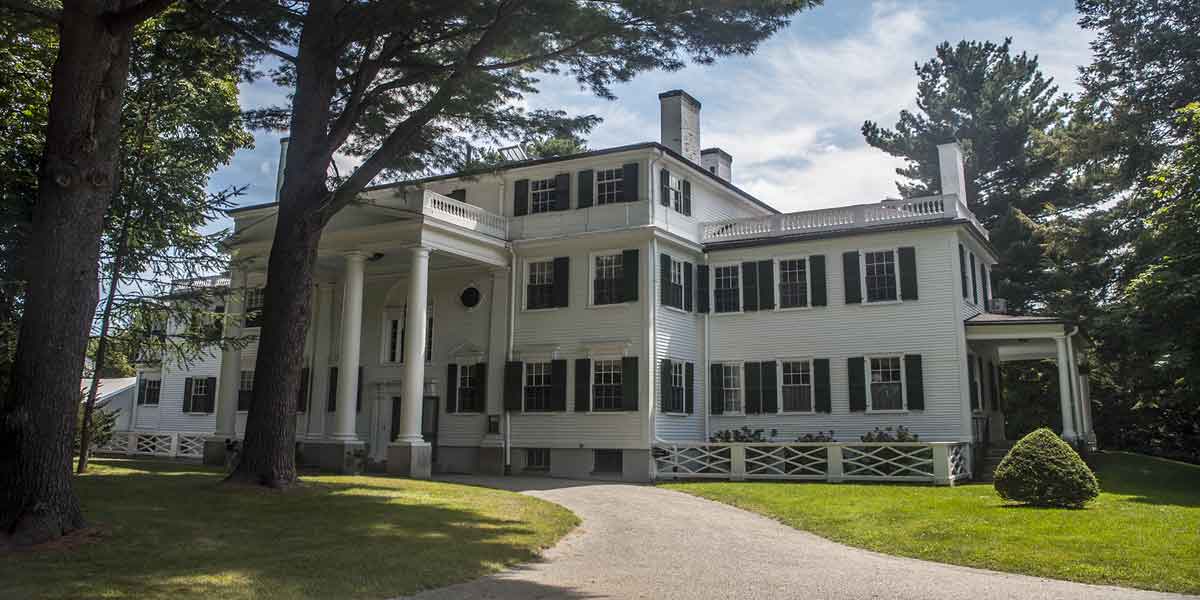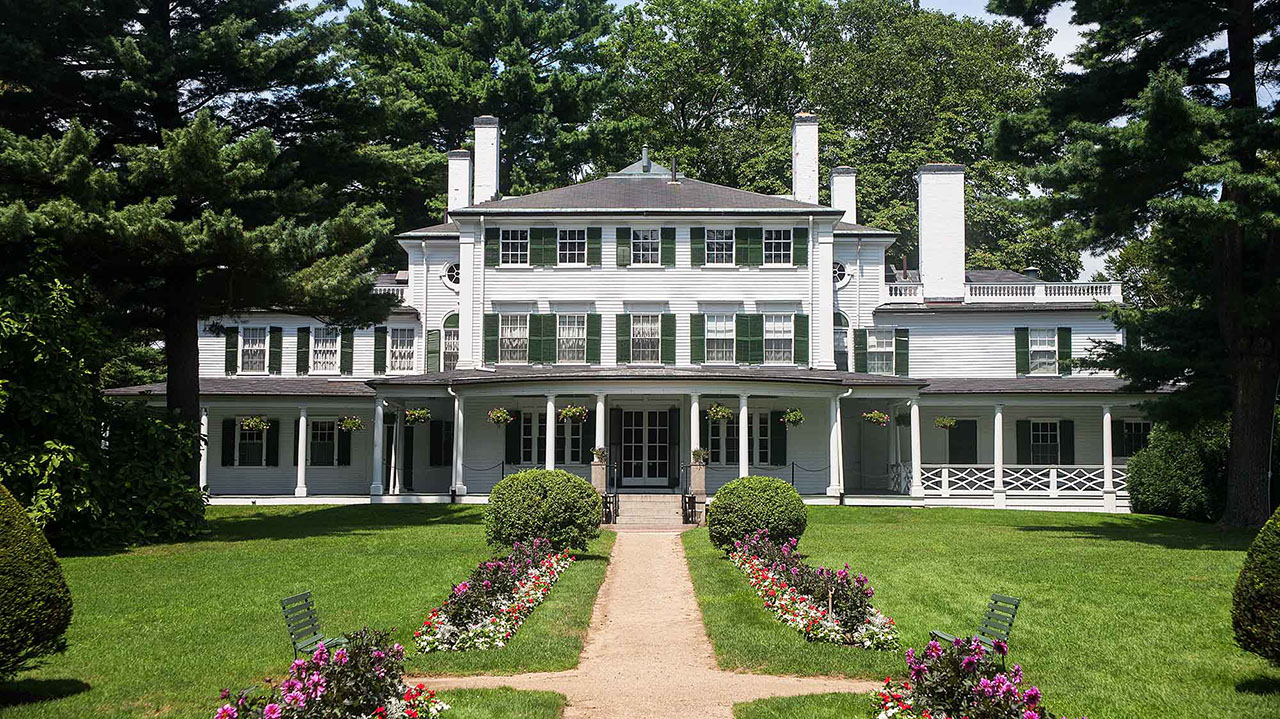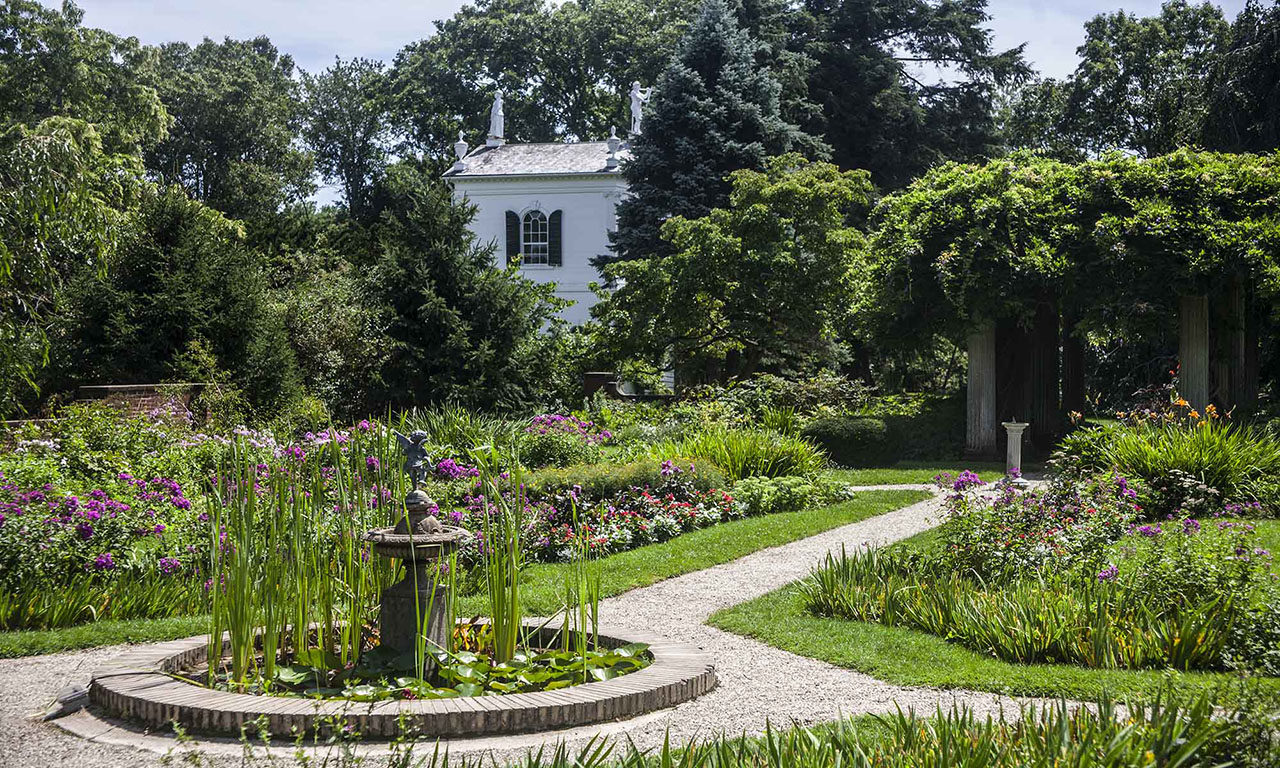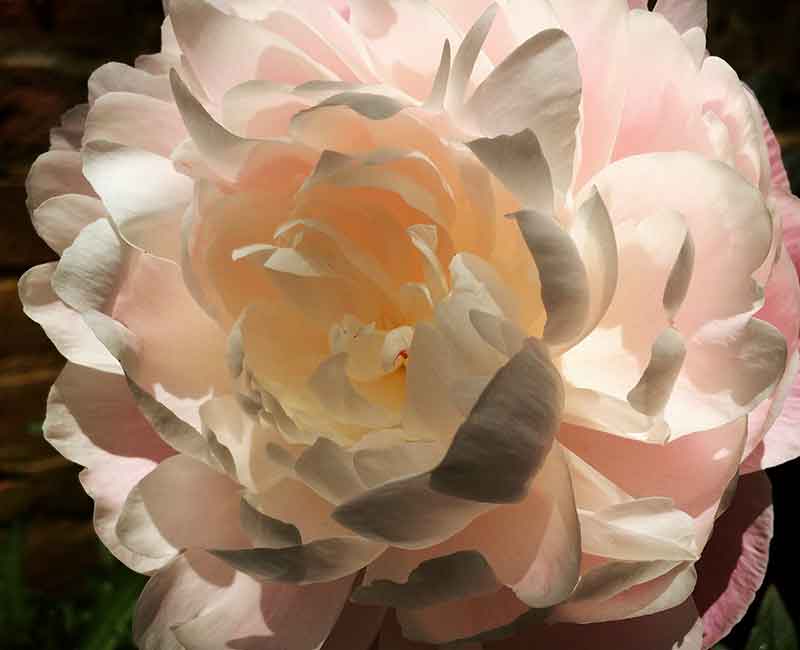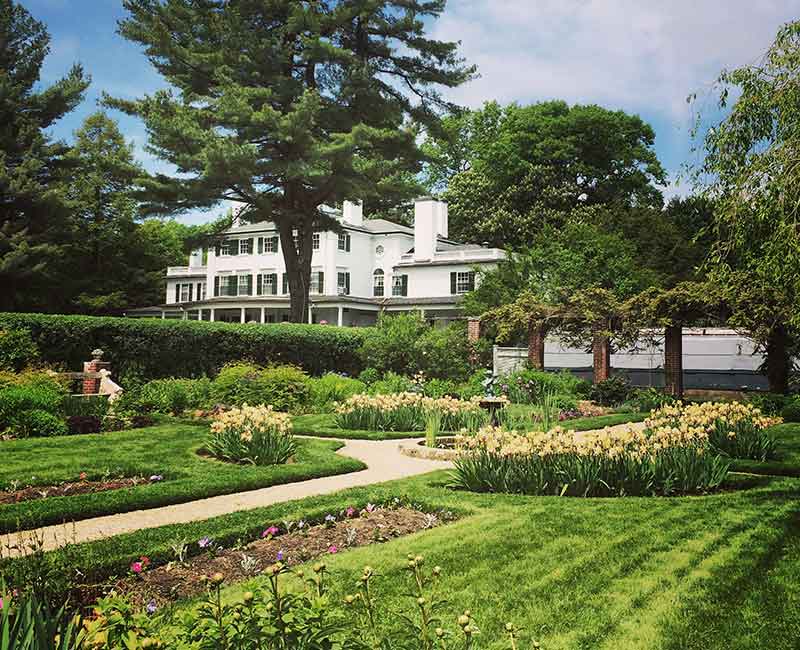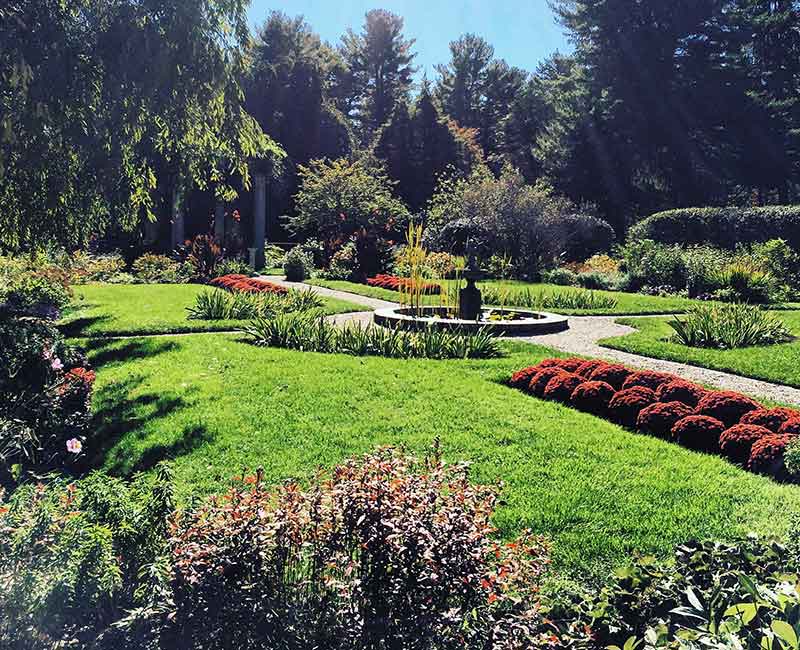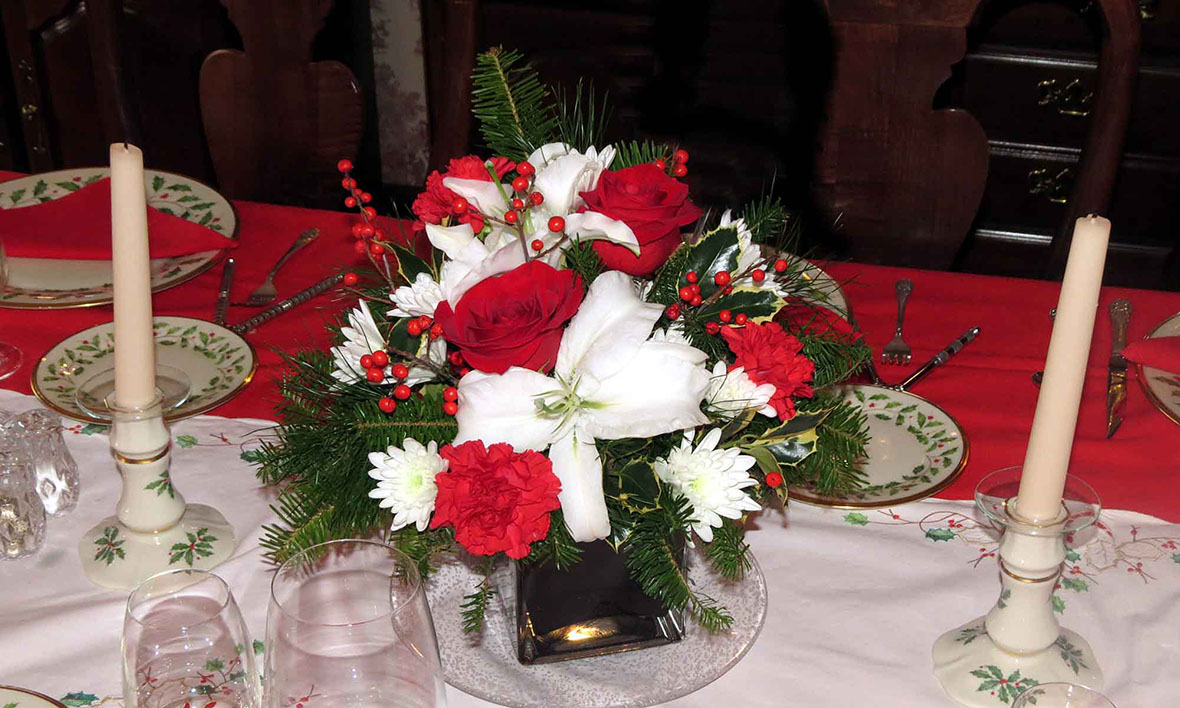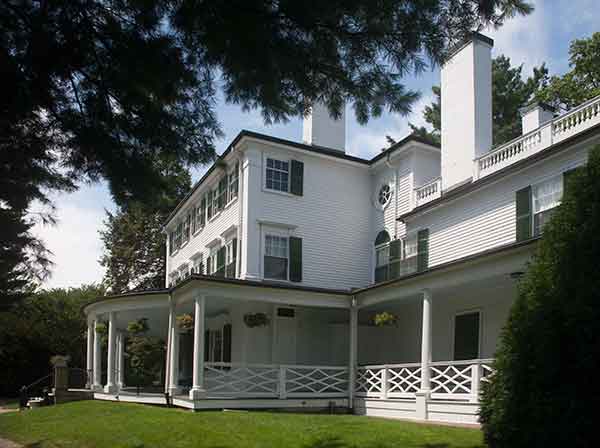A scion of one of the oldest and most notable Massachusetts families and a direct descendant of John Endecott, the first Governor of Massachusetts, William Crowninshield Endicott, Sr., was, most notably, Secretary of War in President Grover Cleveland’s First Administration from 1885 to 1889.
In 1888, at a ball at the British Embassy in Washington D.C., Endicott’s daughter, Mary, met, and, six weeks later married, the great British Statesman and politician, Joseph Chamberlain, who would serve as the head of the British Colonial Office (Secretary of State of the Colonies) at the height of the British Empire when Great Britain ruled a quarter of the world’s population.
Mary’s wedding to Joseph Chamberlain led her to becoming one the few people befriended by Queen Victoria in the later years of her widowhood. One Endicott family story is that Queen Victoria used to remark, and, perhaps even entered in her diary, that if she should ever visit America, the only place she wanted to see was Glen Magna Farms.
At the hub of British politics, as step mother of Austen Chamberlain who would serve as British Foreign Secretary in the 1920s (Austen was also a winner of the Nobel Peace Prize) and Neville Chamberlain who would serve as British Prime Minister in the 1930s, Mary would continue her friendship with the Royal family during the succeeding reigns of Edward VII, George V (who wished to bestow a peerage upon Mary – she declined), and Queen Elizabeth.
Mary and Joseph summered here at Glen Magna Farms a number of times. In fact, the formal garden enclosed by the hedge at the left of the Great Lawn was designed by Joseph and has since then borne the name of the Chamberlain Garden. It was in this garden that a failed assassination attempt was made upon Joseph by a radical Irishman opposed to the British policy in Ireland. It was recorded that the assassin, upon realizing that Mary was seated by Joseph on the garden bench, would not murder Joseph in the presence of his wife. Security personnel seized the assassin moments later. The bench remains in the garden to this day.
After Joseph’s death in 1914, Mary would continue to travel from London to stay at Glen Magna Farms numerous summers until her death, at the age of 93, in London, in 1957.
In 1896 John Singer Sargent painted Joseph Chamberlain’s portrait (now hanging in the National Portrait Gallery, London). In 1901, Sargent painted Ellen Peabody Endicott’s (Mary’s Mother, Mrs. William C. Endicott, Sr.) portrait, and, in 1902, Mary’s portrait (both portraits now hang in the National Gallery, Washington, D.C). In 1903 Sargent painted Mary’s Sister-in-Law Louise’s (Mrs. William C. Endicott, Jr.) portrait (now in a private collection). Sargent also painted a portrait (now in a private collection) of Mary’s husband, William C. Endicott, Jr.
The Mansion’s beautiful woodwork, including that carved by Samuel McIntire, as well as many of the fireplaces were taken as mementoes from other family properties and incorporated into the Mansion’s fabric over the years.
In 1814 the Old Fashioned Gardens in the Great Lawn off the veranda on the south side of the Mansion were designed and planted by one of America’s earliest and greatest landscape designers, the Alsatian, George Huessler.
In the 1890’s, in conjunction with the redesign and expansion of the Mansion, the driveways and walks were laid out by Frederick Law Olmstead (Olmstead, Olmstead and Eliot) the designer of Boston’s Emerald Necklace and New York City’s Central Park. Olmstead’s partner, Charles Eliot, the pioneering Massachusetts conservationist and founder of the Trustees of Reservations, rejuvenated the gardens with plantings of a variety of new annuals and perennials. The Arboretum and Shrubbery Gardens (beyond the onion domed gazebo) were designed by Joseph Chamberlain in consultation with Charles Sprague Sargent, the founder and first director of Harvard University’s Arnold Arboretum.

